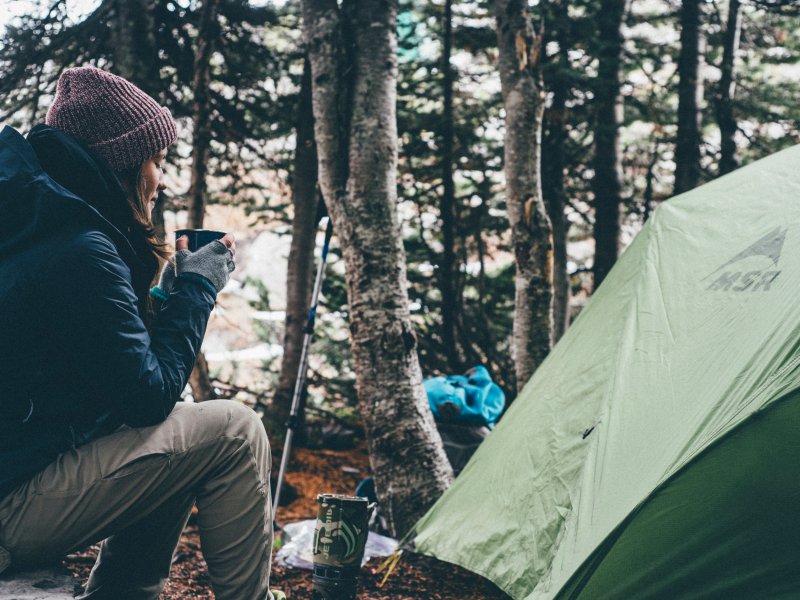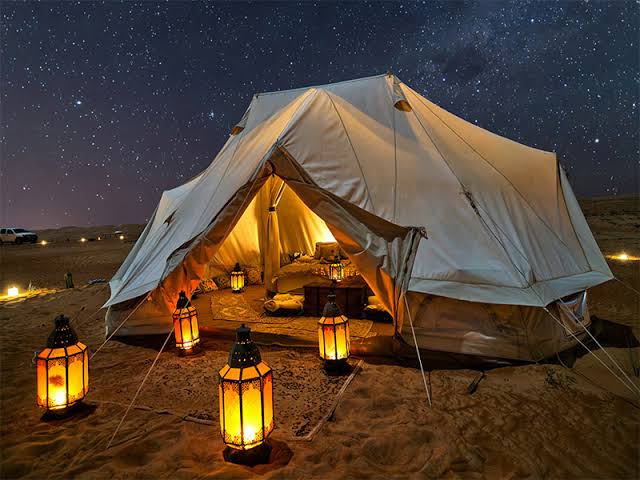
Camping in Europe is very different from the usual wild life in a tent. These are well-groomed, protected areas with a variety of entertainment and good service. Camping holidays are preferred by families, couples or large groups of eco-tourists.
Backpackers will choose a rubber surfing or budget hostel, as the price of accommodation in a tent is often higher than the cost of overnight stays in the city. People who like to walk in the fresh air or ride a bicycle along the river have a rest here.
It happens that you want to leave everything and go to the village. Here’s a European version of downtown fishing – camping.
Where to sleep at a camping site
Most campgrounds have tent rentals, so you don’t have to bring them with you. It is also luggage for which you will have to pay the same amount of money as the rent. Before booking a place, make sure you have everything you need in the camp so you don’t sleep outdoors.
But don’t worry, campsites in Europe offer a variety of accommodation. These can be small bungalows, capsules, yurts, types, tree houses, safari tents or gypsy cars. On the territory there are ready full houses or gesthouses, where you can rent a room.
Almost all campsites offer accommodation, from cute little houses in Bruges to hostel-style bungalows in Amsterdam, tent hostels and fixed trailers in Venice, and overnight stays in overgrown wine barrels in Melnik, Czech Republic.
Tourists who travel by car, rent a place for the car and often spend the night in it. While still rare, but there are travelers who travel around Europe in the houses on wheels.
The campsites have room for any traveller. The cost of stay is different. The most budget option is a parking lot with its own tent. For this kind of overnight stay you will be asked for 6€-8€ per person per night. You have to pay extra for the car or motorhome.
For example, the cost of a day’s stay with a trailer at a camping in Slovenia will cost about 20 €. If you have a rest with a company of 5-6 people, you will have to pay from 50€ per day for everyone.
Let’s just say that camping is not about saving money, but just about another way to travel and explore a country where you may have been more than once. Yes, there are places where this is still one of the most affordable housing options (especially in Scandinavia).
But there are such luxurious campsites with water parks and spa centers, where the rest will be like in a five-star hotel. And it will cost almost as much.
How to get to the campsite
There are many campsites in Europe and they are not isolated from civilization. Finding a place to camp is no problem. There are several sites like Booking, but dedicated to camping. One of the most popular services for selecting and booking a place is Eurocampings.
You will not be stuck in the middle of nothing. Camps are located within the city or within walking distance of it. Sometimes you can even find them in the centre. Very often they are close to public transport stops so you can easily get into the city. Americans who travel across Europe are surprised, because in their homeland without a car, you can’t get to such a camp.
Of course, the most comfortable thing to do is to take a car and go away from the megalopolises, or to go around several countries with a tent in the trunk. Especially since camping is more often associated with travel by car. Therefore, you can rent it for this trip.
Be careful if you take a car in one country and return it to another, the cost of rent increases by almost 10 times. For example, if you take a car in Prague and rent it in 4 days in Ljubljana, the minimum amount to be paid is about 550 €.
And if you take it in Ljubljana and return it after 4 days – 55 €. It is more profitable to travel around Europe by car, and to organize a trip with tents to the May tents on the territory of one country can be rented.
Service and accommodation in the campsite
In such places, everything usually works according to a set of rules, in principle, like everything else in Europe. For example, it is impossible to drive to the camp after 22-23:00.
The cost of living will depend on the information you specify in the application form before you move in: how many people, how many places for transport, what kind of transport, whether there are children, whether there are animals, need territory with or without electricity and much more.
You will be shown a special place for a tent, tell how to use outlets, kitchen and showers, and what you need to do to wash things.

Free internet at the campsite
Almost all European campsites have Wi-Fi: some only near the bar or reception, but most cover more than 70% of the camp area. Rarely do they charge a fee for Wi-Fi or an additional device, but the prices are reasonable – about 1-2€ per day.
The speed varies greatly and depends on the workload (it is unlikely that you will be able to see Netflix before going to bed). In general, Wi-Fi campsites are better than budget hotels or hostels.
Safety at the campsite
As in the hostels, you’ll be offered the option of using safes or lockers. And most of the time, you will have to pay an extra fee (1€). The territory of the camp is guarded and there is no reason to worry, if we do not talk about super-valuable things. If you want to save money, don’t take your laptop or expensive equipment on the road, so you don’t have to pay too much for storage.
Don’t worry about insects and other dangerous animals – the areas are lively, lively and regularly inspected by inspectors. Close your tent before you leave and no spiders will bother you. Shake the tent well when you collect it, and keep your shoes inside or check your shoes in the morning for something or someone dangerous.
Electricity in the campsite
You can stay at the campsites in areas where there is no electricity supply. It’s a little cheaper and will do if you’re travelling in a trailer – you don’t need a shower, kitchen or socket.
Sometimes, you don’t even need a Wi-Fi. You may need to recharge your mini power plant, but you can pay for it separately (2€-4€) rather than overpaying for the entire duration of your stay at the camp.
If you are staying in an area with electricity, all visible outlets are available and you can use them safely (1€-2€ is added to the price).
Don’t forget to take an adapter for European outlets, an extension cord and don’t expect power to be like at home – most often to a camping outlet with minimal power.
For those staying in tents, we recommend that you bring flashlights and a large lamp. The camping area is lit up, but after the camp (same 22-23:00) the lights can be switched off.
Shower and laundry room at the campsite
You will most often pay for shower use (from 1€ to 6€ in Scandinavia) if you book a tent. You can spend about 5 minutes in the shower. Less common are places where you don’t have to pay extra for a shower (mostly in Italy). On the campus website you can find information about free and paid services.
If you need to wash your clothes, you will have to pay the exact cost (2€-4€). This requires powder and coins, as the machines are equipped with automatic machines: you load the laundry, put down the change, close it and it starts working. You pay separately for drying the laundry. In campsites set up large washing machines so that the couple for one use washed all the things.
Entertainment on the campus
The campsite is better suited for children than most hotels. Usually there is a playground, swimming pool, slides or children’s attractions, swings, playroom. In the high season (July and August), the big campsites have activities for children from 5 years old.
Restaurants and cafes on the territory have a children’s menu. For all this there is an additional fee. For example, to swim in the pool, you need to pay 5-10€, for water park – from 10€ per day. But it is definitely cheaper than in big cities.
In France, there are mini-farms at campsites. Here you can breed birds, goats or ponies – you can buy fresh food for dinner, or ride on small horses. By the way, you can stay at the campsites with animals. You will have to pay for them too, but this is a cool opportunity to relax with your pet.
The camping site offers bicycles, catamarans, boats, mountain hikes, excursions, parties – the whole list of attractions depends on the location and the cost of the camping site. If you just plan to enjoy nature and privacy, you can save a lot of money.
Where to cook
Almost every camping site has a restaurant or cafe attached. It’s a great safety net if you don’t have time to buy groceries or cook food yourself.
Kemperers bring dishes, a refrigerator bag and a hot-water bottle or electric tile for cooking. You can wash it all for free. If there is a full-fledged kitchen in the campus, you will most likely have to pay for it.
There are places for barbecues on the territory: not to make a fire, but to ignite the charcoal on the barbecue. This can be done for free. A disposable barbecue is sold at the supermarket and costs less than 1€.
Rarely are there camping sites with picnic tables or gazebos. Travellers bring folding chairs, tables and tarpaulin canopies with them in order to preserve the spirit of “wilderness rest”.
Even if you hate sleeping in a tent and you need a hot shower at least once a day, it doesn’t mean that camping is not for you. Any comfortable benefits for an additional fee, and unity with nature is not excluded.
